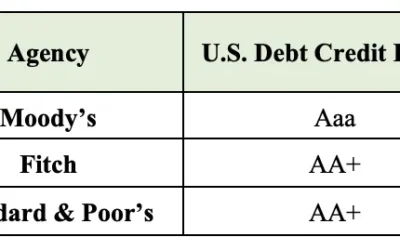Introduction
The tech landscape has witnessed rapid advancements in artificial intelligence, but the recent unveiling of OpenAI’s Codex marks a significant leap forward, particularly for computer programmers. This web-based coding tool promises to enhance productivity, streamline coding processes, and even democratize programming by breaking down barriers for novice coders.
What is OpenAI Codex?
OpenAI Codex is an AI-driven coding assistant designed to understand and generate code in over a dozen programming languages. It’s the successor to the widely popular GPT-3, but with a focus specifically on programming tasks. Codex can interpret natural language prompts and translate them into executable code, making it not only a powerful tool for experienced programmers but also for those just starting out.
The Capabilities of Codex
One of the major features of OpenAI Codex is its ability to understand human-like prompts. For example, a user could simply type, ‘Create a Python function that calculates the factorial of a number,’ and Codex would generate the appropriate code. This feature represents a move towards a more conversational interface for coding, which is both intuitive and user-friendly.
Codex has shown impressive capabilities with respect to handling various programming languages, including JavaScript, Ruby, Go, and more. By harnessing knowledge from vast sources—such as open-source code from GitHub—Codex improves its performance with each interaction, actively learning from feedback and user engagement.
Key Features
- Natural Language Understanding: Codex can interpret and generate code from user-friendly prompts.
- Multilingual Support: The tool can code in several programming languages, making it versatile for developers.
- Interactive Debugging: Codex can help identify and fix bugs in existing code snippets.
- Integration Capabilities: It can be easily integrated into various Integrated Development Environments (IDEs) and collaborative platforms, boosting team productivity.
- Learning Resources: Codex can also serve educational purposes by helping in coding boot camps, providing code explanations, and stepping through complex logic.
OpenAI’s Challenge to Google and Anthropic
With the advent of Codex, OpenAI positions itself to compete against tech giants such as Google and newer AI contenders like Anthropic. Both Google and Anthropic have been investing heavily in AI technologies, creating tools that enhance productivity and creativity. Google’s AI, particularly in areas like search and coding assistance, already has a strong foothold in the market; however, Codex is aiming to carve out its niche by focusing exclusively on programming.
This is crucial because while many AI tools provide general assistance across a variety of topics, Codex specializes in the intricacies of coding, making it highly effective in tackling specific programming challenges. Its design allows for a deeper understanding of coding paradigms, as opposed to just generating code snippets—something that sets it apart from traditional AI tools.
The Impact on Developers
For professional developers, Codex can significantly speed up their development cycles. From generating boilerplate code to suggesting optimizations, it acts as a virtual assistant that can save countless hours. Furthermore, by handling the drudgery of repetitive coding tasks, developers can redirect their focus on more complex problem-solving and creative aspects of their projects.
For novice developers or coding enthusiasts, Codex opens up programming to a wider audience by providing guidance and resources that would traditionally require extensive knowledge or a steep learning curve. As a result, individuals who may have been intimidated by the complexities of coding can explore their interest in software development with more confidence.
Real-World Use Cases
Since its launch, many developers have shared their experiences with Codex across various platforms. Companies like Microsoft have already integrated Codex into their own products, showcasing its real-time code generation and debugging features within Visual Studio Code. This integration allows users to benefit from Codex’s capabilities directly in their development environment, making the transition seamless.
Moreover, educational institutions are exploring Codex as a teaching tool. By introducing students to an interactive and supportive coding environment, Codex can act as a tutor, providing feedback and instructions as students navigate through code challenges. Coding boot camps are also seeing the potential in using Codex to enhance their curriculums, potentially enabling them to teach more complex subjects than before.
Ethical Considerations and Challenges
With great power comes great responsibility. The deployment of Codex raises essential questions regarding the ethical use of AI tools in programming. Concerns about code plagiarism from existing sources, the potential for producing insecure code, and the scalability of AI-generated code quality are significant issues that developers and companies must address.
OpenAI has continuously emphasized the importance of responsible AI usage, proposing guidelines and best practices. Developers are encouraged to review and validate the code produced by Codex, ensuring that it adheres to security standards and project-specific requirements. This means that while Codex can bolster productivity, it shouldn’t replace the quintessential human element in programming—critical thinking and problem-solving.
The Future of Codex and AI in Programming
As AI continues to evolve, the incorporation of tools like Codex signifies a shift in how software development is approached. Activating both AI and human creativity in coding can lead to innovative outcomes and faster project turnaround times. With continual improvements, OpenAI aims to refine Codex’s abilities, increase its accuracy, and expand its language support.
Furthermore, as Codex becomes more entrenched in the programming landscape, it will likely influence how coding courses are structured, potentially leading to a future where coding is seen as an accessible and fluid language—akin to learning to speak a new tongue. The possibilities are vast, as both budding and seasoned programmers look to integrate AI-assisted coding into their practices.
Conclusion
In conclusion, OpenAI’s Codex has the potential to change the way we think about programming forever. By bridging the gap between natural language and code, it could make coding more intuitive and inclusive. However, as with any powerful tool, the responsibility lies with users to ensure that they leverage Codex’s capabilities ethically and wisely. As AI continues to evolve, the opportunities for collaboration between human and machine are destined to create a more vibrant and innovative technological landscape.







